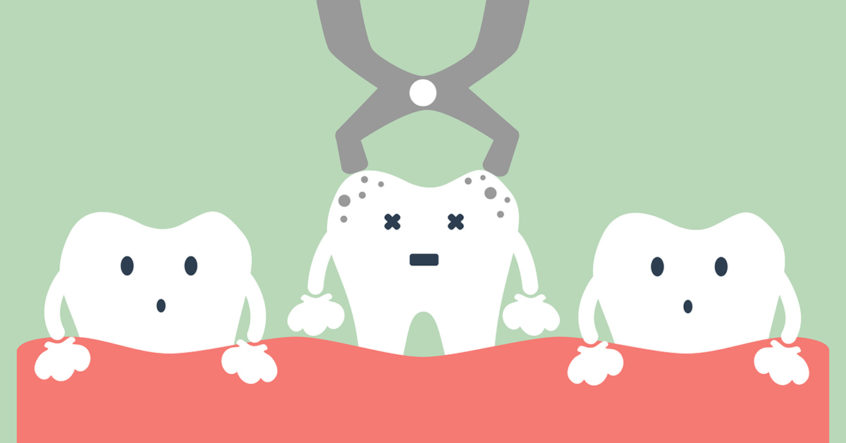Your dentist has many options for treating teeth, including bonding, fillings, and sealants. But sometimes, tooth extraction is a necessary procedure. If your dentist has recommended tooth extraction, it helps to understand the reasons why. Here are some of the common reasons why you may need a tooth extraction.
You’re Getting Braces or Other Orthodontics
When you get braces, your dentist examines all your teeth to evaluate how they will respond to the braces treatment; before, during and after. In some cases, braces can be fitted without any other procedure. In some cases, though, tooth extraction may be necessary to ensure optimal results from the braces. You may have too many teeth for the size of your mouth or jaw. Or there may be an impacted tooth that could jeopardize the health of abutting teeth. Or, you may have wisdom teeth that need to be removed even before they come in so that they don’t cause your teeth to go out of alignment after your braces have come off.
Heavy Infection
If a tooth is heavily infected, and wouldn’t respond to a root canal, then tooth extraction may be recommended by your Baltimore dentist. A heavily infected tooth likely has damage to the part of the tooth that contains the nerves and blood vessels. This condition can lead to an infection that can move beyond the mouth. In fact, studies have shown that severe dental infection can lead to heart problems and more. In an instance like this, tooth extraction is the best option.
Severe Gum Disease
In cases of severe gum disease, where standard periodontal procedures would be ineffective, tooth extraction is usually the recommended course of action. Severe gum disease frequently leads to bone loss in the jaw, which makes it impossible to support the tooth. When this happens, abutting teeth may be the only thing holding the tooth in place.
Why Get a Tooth Extraction?
When appropriate, tooth extraction not only makes orthodontic treatment more effective. It can also help prevent the remaining teeth from experiencing decay. Tooth extraction may even contribute to a person’s overall health, by preventing oral infection from spreading elsewhere in the body.
After a tooth extraction, your dentist in Baltimore can offer several options for reparative procedures, such as dental implants, a dental bridge, or other solutions following a tooth extraction.
What Can You Expect With Tooth Extraction?
In most cases, tooth extraction is a relatively straightforward procedure that doesn’t require general anesthesia. Local anesthesia can be used to alleviate issues with pain and discomfort. When the tooth is extracted, some bleeding will occur on a temporary basis. Cotton wool is applied, which can be held in place by biting on it.
After the socket has healed, you can return to the dentist to receive a dental implant. A dental implant is a faux tooth that will visually appear to be your original tooth. That way, you don’t need to suffer any potential embarrassment over the tooth that was extracted.
Trust GBP, your dentist in Baltimore, to make your visit comfortable and pleasant. For more information about tooth extraction, please contact us today.

